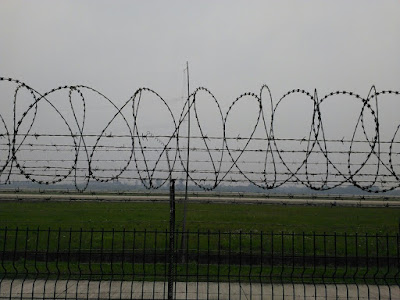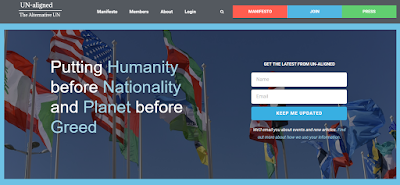Football Match Democracy...
I am certain that one does not have to be a "Remainer" to cringe every time a politician or member of the public declares that the British government must to respect the "will of the people". It as though the people who voted to remain in the EU suddenly lost the right to be considered as people. "The people have spoken!" Yes, just over half of those who went to the polls. What about the rest?
At least in a general election one can obtain representation even if one's party loses and ends up in the opposition. Of course, with the British "first past the post" policy that does not allow for proportional representation, many votes are lost. Nevertheless, when it comes to a referendum, if the winning side does not wish to take your view into consideration, you've had it! It's like loosing a football match: you're just a loser. That is certainly the view of many "Leave" voters despite the fact that the referendum was flawed anyway.
This is not democracy
This view of democracy fits in with the definition of it as "two wolves and a sheep voting on what to have for dinner." This is not what democracy is about and important decisions should not be taken with the tossing of a coin. The issue here is not just a matter of majority versus ignored minority. It is even more serious than that. The danger is in the simplistic idea that a complex issue can be settled with a simple 'yes' or 'no'. Few things are that easy, although many, including politicians would like them to be. Leaving the EU certainly wasn't.
It is like asking "the people" whether to allow immigration of not. There are so many other questions that would need to be taken into account, including whether we would have the right to ask such a question in the first place! But put that to a public vote after panicking people that foreigners are plotting to take their jobs and there you have it. A Brexit situation that would become a nightmare to unravel.
Real democracy
Democracy is not just about votes. It requires education, consultation and most importantly, a solid foundation on inviolable principles. Referendums too, as part of democratic process require safeguards. Her is an extract form an article I wrote earlier this year entitled Five things Brexit can teach us about referendums:
- For a referendum to be meaningful and ethical, voters must be given an informed choice. In Switzerland, for example, where referendums are important feature of democracy, ballot papers are accompanied by information booklets. These include explanations, arguments for and against, and government recommendations. In Britain, people did not have a clue what they were voting for. Of course, no amount of booklets would help if the people have no civic education from an early age.
- Without safeguards, referendums can be exploited by unscrupulous politicians. This is what David Cameron did when he promised a referendum regarding Britain’s EU membership. Another politician could offer a people’s vote on whether they wanted free public transport. This, just to get elected, without any consideration at all as to where the funds would come from.
- The government has a duty to protect its citizens from lies, disinformation and meddling by third parties with a vested interest in causing harm. The Conservative government failed in its duty to protect the people from falsehoods.
- If the government makes a mistake in its handling of a referendum, then it should readdress the wrong and consult the people in a second vote. Mrs. May prefers to plough ahead and lead the nation to a cliff’s edge and possibly over it.
- Apart form education, information and choice, voters need moral integrity. Perhaps only a small proportion of those voting to leave the EU may have done so for racist of xenophobic reasons. Nevertheless, their vote may have tipped the balance. Referendums should never be held about choices that discriminate against minorities. And the same can be said about choices that could ruin the livelihood of thousands of people.











